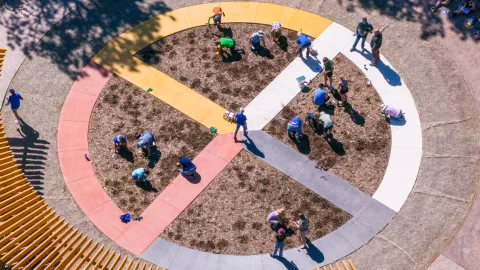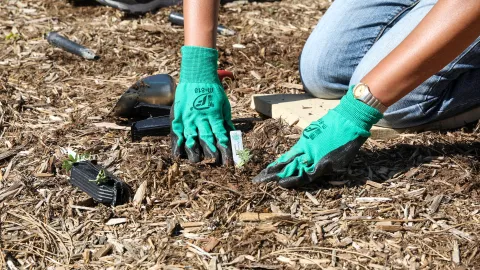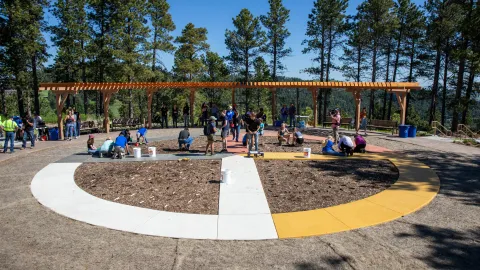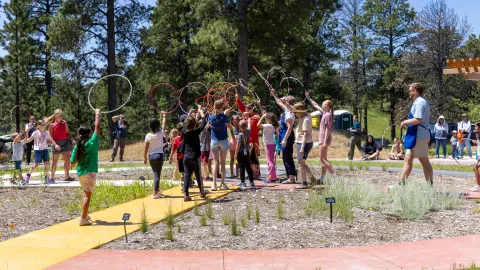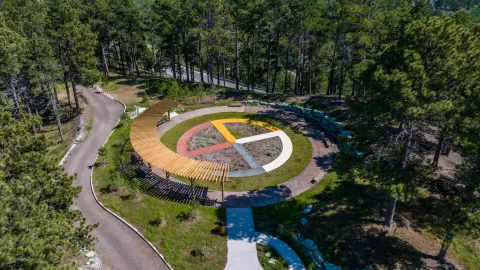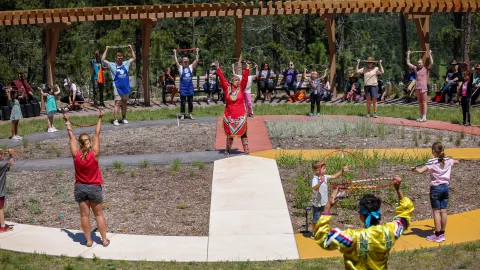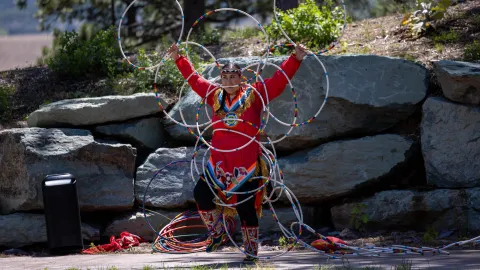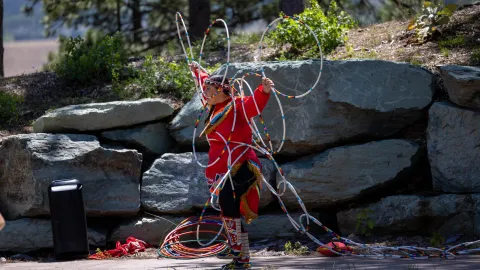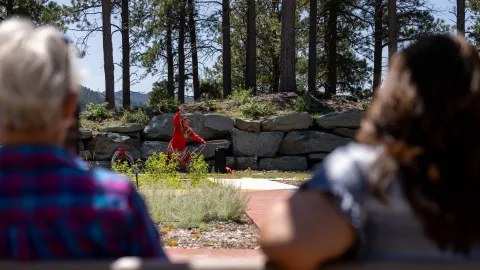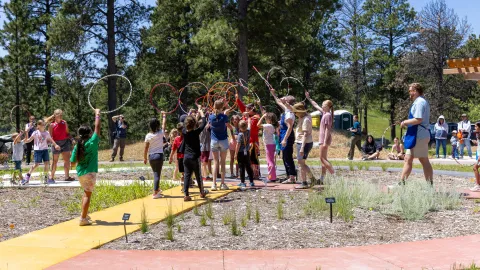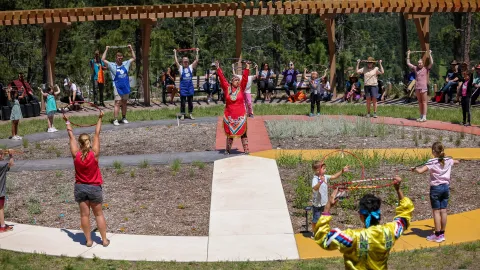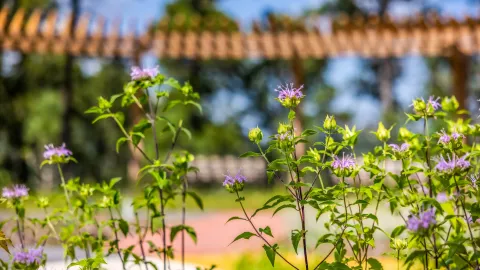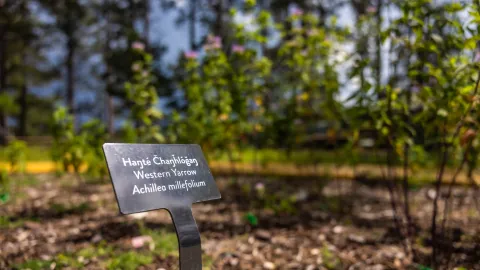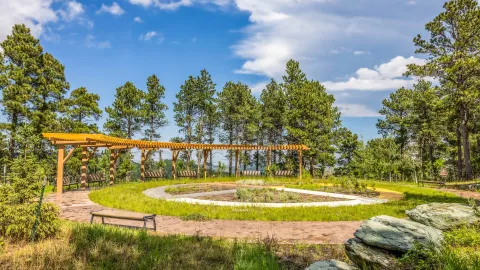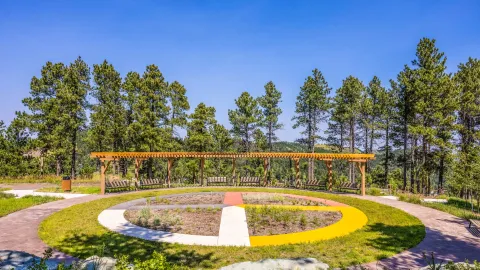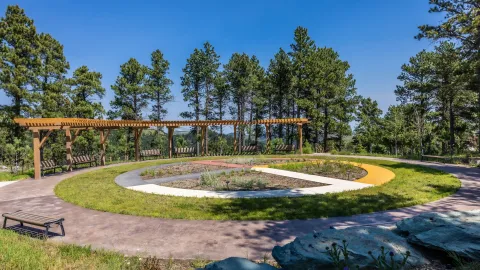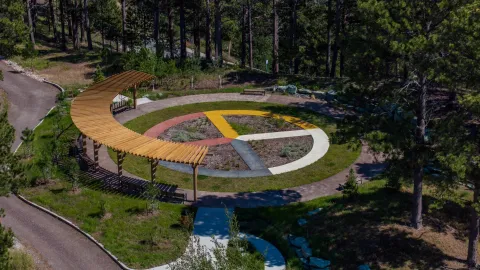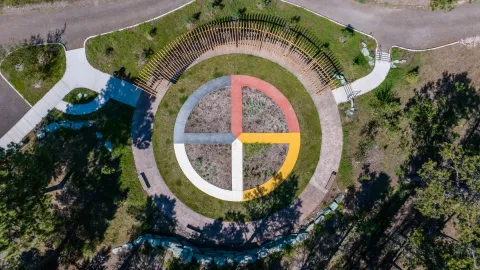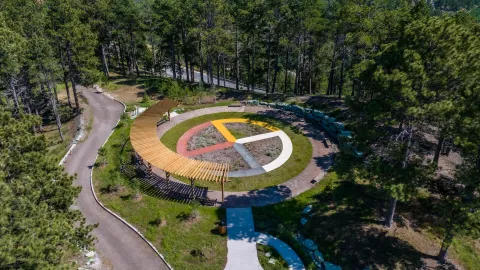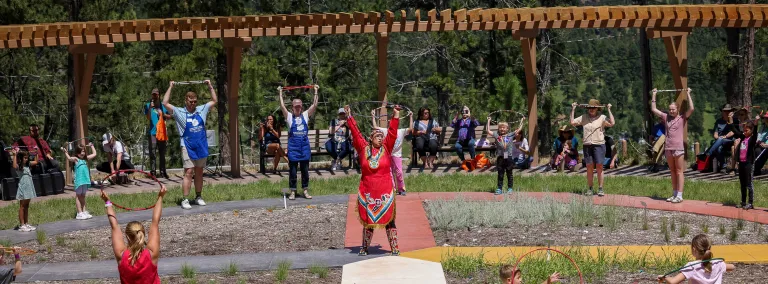
Star Chief Eagle leds a group of Neutrino Day participants in a course on hoop dancing.
Photo by Matthew Kapust
Čhaŋgléška Wakȟáŋ
"Čhaŋgléška Wakȟáŋ," the ethnobotanical garden at SURF, honors the complicated history of the Black Hills, encourages learning across generations, and supports dialogue and reflection.
"Čhaŋgléška Wakȟáŋ," the ethnobotanical garden at the Sanford Underground Research Facility (SURF), highlights the connections between past and present. SURF is indelibly linked to the history of the Homestake Mine, which operated from 1876 until 2001. While gold mining created wealth and jobs in the Black Hills for over a century, SURF has shifted the focus of the mine from profit to scientific discovery. Čhaŋgléška Wakȟáŋ embodies the promise of a new, more equitable chapter of this story.
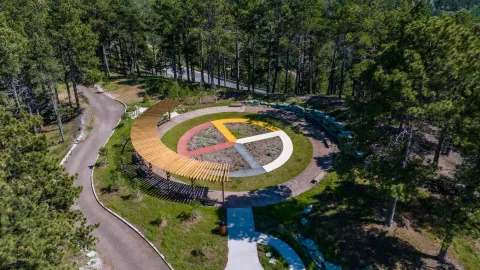
An aerial view of Čhaŋgléška Wakȟáŋ.
Photo by Stephen Kenny
The ethnobotanical garden was developed from a recommendation of the Community Relations Committee. The vision included a place on SURF grounds to grow and learn about indigenous plants that could be shared with the community. Guided by the SURF Cultural Advisory Committee, the Čhaŋgléška Wakȟáŋ Working Group, and Indigenous elders from the region, the garden demonstrates our capacity to collaborate with our communities, our employees, visitors, researchers, and other stakeholders. It is our effort to explore the connections between science, art, culture, and humanistic inquiry in the Black Hills.
Our Humble Commitment
The world-leading scientific research at SURF is innovative and ambitious. Yet, we recognize throughout human history the pace of exploration and innovation has caused unintended consequences. At SURF, we endeavor to balance our ambition with humility.
Čhaŋgléška Wakȟáŋ represents one aspect of this commitment. By offering a place to reflect and connect with one another in a land held sacred by many, we are reminded of our tiny place in the universe and in the broad arc of history. The garden’s setting encourages us to slow down and consider all aspects of our work and to act with intention and grace. The act of tending a living ethnobotanical garden emphasizes our awareness of the need to steward the environment as well as the relationships on and around our campus.
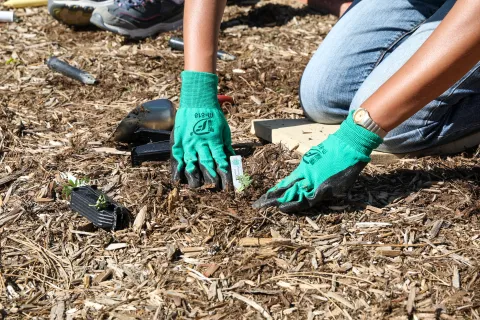
The Garden is our practice of humility and helps balance our approach to doing cutting-edge work in an age of unbridled ambition.
Our core wonder
SURF’s mission is to advance world-leading science and inspire learning across generations. Čhaŋgléška Wakȟáŋ is an outdoor space that both honors the extraordinary history of the Black Hills while recognizing the potential for scientific learning above and below our feet. Our mission provides ample space to explore the intersections between science, art, culture, and humanistic inquiry. Presentations at Čhaŋgléška Wakȟáŋ draw from fields such as geology, biology, ethnobotany, art, and culture to promote education and understanding about the history and environment of the Black Hills.
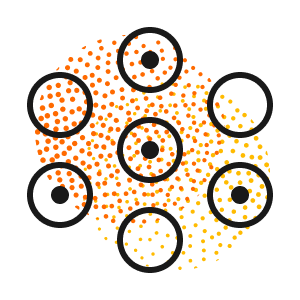
Where do we come from?
We also recognize that much of our work constitutes a twenty-first century approach to humanity’s ever-evolving efforts to answer a deceptively simple question: Where do we come from? Over the course of human history, cultures and communities have sought to answer this and related questions with many different tools.
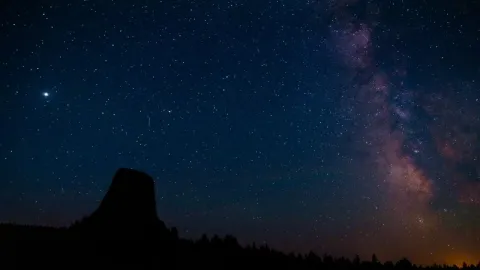
Our work is indisputably linked to curiosity and discovery. Čhaŋgléška Wakȟáŋ represents our willingness to recognize various traditions to provide multi-dimensional responses to the most fundamental concerns of human society.
Connecting Community
Healing takes time. The tensions that shape this place emerged over many decades. Resolving them will take patience and the careful cultivation of purposeful relationships intended for the good of humanity. Every species that flourishes in Čhaŋgléška Wakȟáŋ began with the planting of a seed. The garden is a seed of another kind. It is a commitment to fostering a spirit of respect and reciprocity over time. Deep roots of unity and mutual respect will anchor our work going forward.
The ethnobotanical garden embodies our interest in being a good neighbor and caretaker to the surrounding areas. Although anchored in Indigenous history and experience, the garden is not exclusively a space for those communities or conversations. Rather, we envision the garden as a space where everyone feels welcome. It will serve as a location that helps break down barriers by building trust and creating space for collaboration.
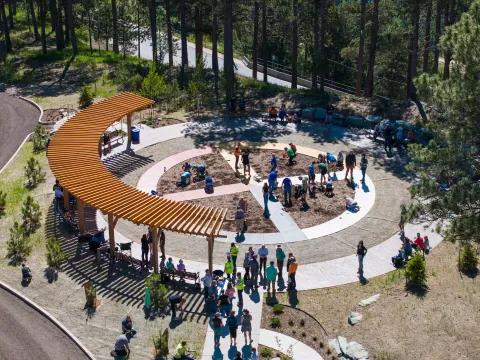
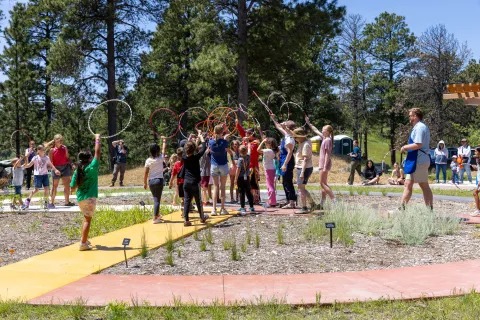
Get Involved
SURF is a learning organization and values feedback from folks across generations, experiences, and geography. We value your observations and questions regarding the content of this webpage. Please connect with us to share your comments.
Follow SURF on social media to keep apprised of events and other opportunities to visit Čhaŋgléška Wakȟáŋ.
Donate
Your support is integral to the growth and sustainability of Čhaŋgléška Wakȟáŋ. Whether it's a one-time donation or regular contribution, every bit helps us to promote scientific education and cultural understanding.
